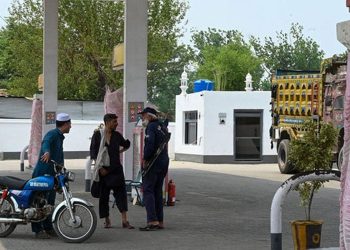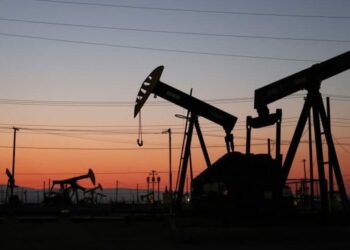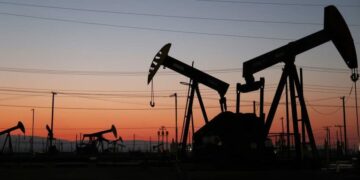Pakistan is witnessing historic inflation in the history of its existence and our political leaders very comfortably claim that the current inflation is a global problem. For the first time in history, the minimum price of all four petroleum products has crossed the denominator of Rs100.
Our political leadership still says that the petrol prices still cheaper than other countries in the world. However, the government does not bother to clarify what is the minimum daily wage and purchasing power of the workers in the countries you are citing as examples.
A comparative study of petrol prices shows that petrol in the United Arab Emirates (UAE) is available in Pakistani currency at Rs 117 per liter and the daily wage of a laborer is Rs 3,000, while petrol in Saudi Arabia is available at Rs 107 per liter and the daily wage of a laborer is Rs 4500.
Similarly, petrol in the United States (US) is available at Rs165 in Pakistani currency is Rs 10,000, petrol in UK is Rs 205 and wage is Rs 12,000, in India petrol is Rs 210 per liter and wage is Rs 2,000 while in Bangladesh petrol is Rs 175 per liter and daily wage is Rs 1800.
However, petrol is currently available in Pakistan at Rs138 while the daily wage of a laborer is only Rs800. It is absurd to admit that a laborer earning Rs800 per day can bear the pressure of Rs138 per liter of petrol. Consequently how Pakistani labor can support his family amid the rising inflation if we only include the essential commodities.
In countries around the world where inflation is higher than people’s means and purchasing power is declining, the risk of riots increases. In the past, several countries including South Africa, Argentina, Greece, Zambia, suffered civil riots and instability for years when inflation was soared.
Today in Pakistan too, a huge amount of population is facing starvation and if this storm of inflation continues like this, there is a strong possibility that people will take to the streets, which is not far from the situation of anarchy.
It is true that the accumulation of debts already existing in Pakistan has become a burden on the present regime and due to the payment of interest on it, we have fallen into the trap of the current account deficit. The IMF’s ongoing meeting has so far sought to prevent the global lender from imposing further taxes because if indirect taxes are raised, people will go hungry. Later, they may resort to suicide.
If we look at the current country’s situation from the political point of view, the incumbent government should have increased its revenue, but it failed and our export chain is stagnant. Before the government came to power, it thought that the $200 billion that were laundered would probably come back easily, but since coming to power, the government has failed to make any progress in this regard.
Meanwhile, our industrial sector has not been able to flourish and the government has failed to create an industry that can boost exports and support the economy. Given all the circumstances, it would not be wrong to say that the problems have increased in the present regime due to mismanagement of administrative affairs.
We have to admit that inflation is rising all over the world but it is also true that in a world where inflation exceeds the purchasing power of the people there is a possibility of anarchy and insurgency. To avoid this, the states there adopt various economic reforms for their people and increase their salaries so that they can make a living.
One of the factors contributing to the sharp rise in inflation is that the United States no longer sympathizes with us, which is why the IMF has abandoned its past soft stance on Pakistan. At the same time, Indian citizens holding key positions in the International Monetary Fund are also causing us problems.
Meanwhile, the dollar has also reached a record high of Rs173 against Pakistani rupee due to the evolving situation in Afghanistan, which has also begun to disrupt the balance of payments, leading to spiraling inflation.
Currently for the poor, getting two meals a day is like a huge challenge. If inflation continues to rise, it will be a prelude to a new storm, and we need to consider whether we can afford it. Can we afford a situation where the sea of people is on the streets and the government is not able to control them?
The government now needs to focus on ways to immediately reduce its spending and imports, increase exports and provide relief to the poor in the form of ration cards by levying taxes on the rich, otherwise it is impossible for the country to move forward.
It is the duty of the government to provide assistance to the person who cannot afford a standard living, as enshrined in Article 38 of the Constitution of Pakistan. It is the responsibility of the government to run the administration in such a way that the rich people can be taxed but the poor man should not be burdened with taxes.



























